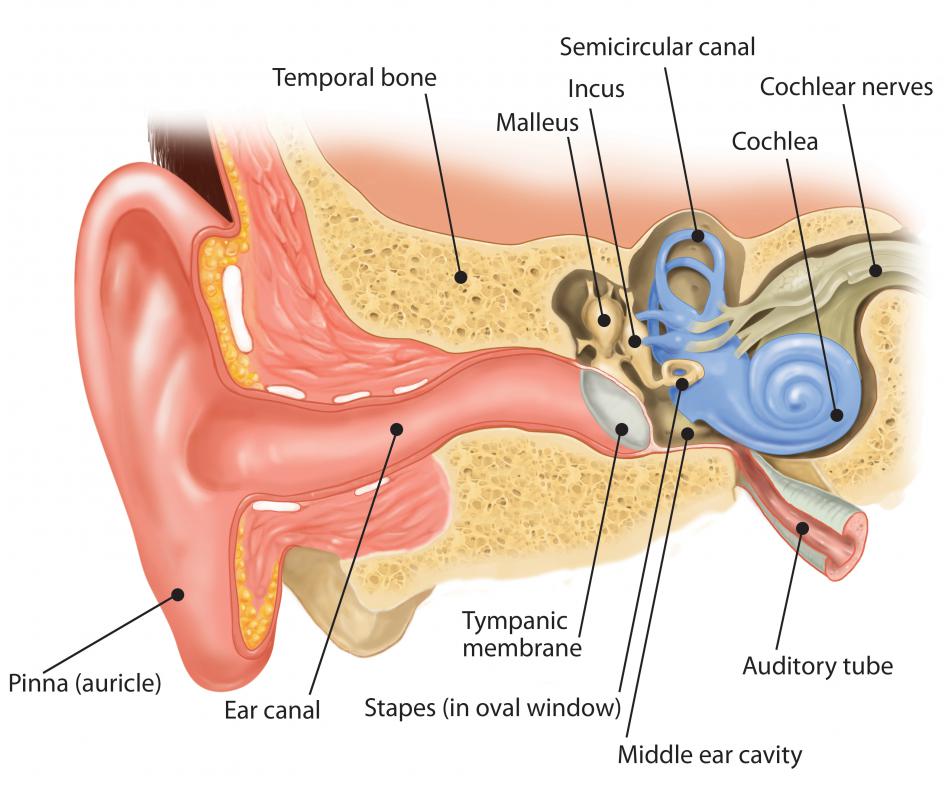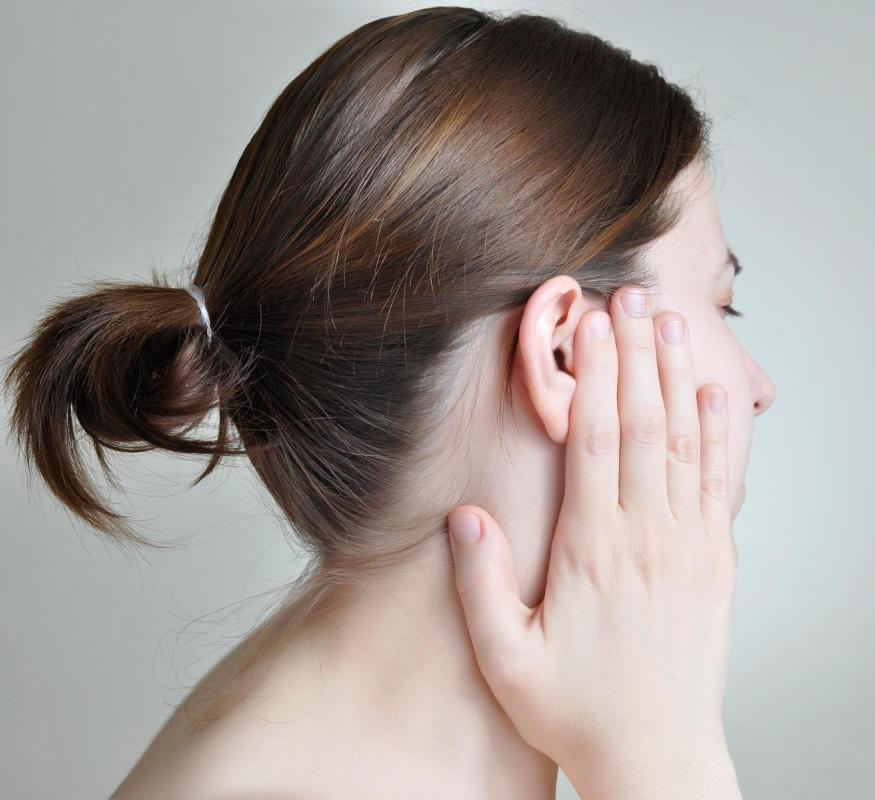At WiseGEEK, we're committed to delivering accurate, trustworthy information. Our expert-authored content is rigorously fact-checked and sourced from credible authorities. Discover how we uphold the highest standards in providing you with reliable knowledge.
What are the Most Common Ruptured Eardrum Symptoms?
A ruptured eardrum is a tear in the tympanic membrane that separates the outer from the middle ear. Ruptured eardrum symptoms include hearing loss, drainage, pain or discomfort, hearing noises or humming sounds, dizziness and nausea. A ruptured eardrum, also known as a tympanic membrane perforation or a perforated eardrum, can be very painful, and a person who has these symptoms should consult a physician or ear specialist.
The eardrum plays an important role in the hearing process and in the health of the ear. The membrane is responsible for detecting sound wave vibrations and then transmitting impulses to the brain, which converts these impulses into sounds. It also protects the inner ear from foreign objects and prevents bacteria from traveling into the middle and inner ear. When a tear occurs, the hearing process is damaged and the ear can become infected. Ruptured eardrum symptoms should not be ignored because permanent damage to a person’s ability to hear can be affected.

While some people will experience no symptoms, most people complain of sharp pains or general discomfort. The pain may subside after ear drainage occurs. Drainage can be clear or could contain pus or blood because of damage or an infection in the ear.
Buzzing, ringing, clicking and humming are also among the ruptured eardrum symptoms. The ringing or buzzing sound, known as tinnitus, is without an external source and usually signals hearing loss. Hearing loss is a result of the ruptured eardrum failing to send the nerve impulses that it has converted from sound waves to the brain. If the tear in the membrane is small, a physician may be able to repair it or apply an ear patch to aid in the healing process; the person’s ability to hear will return once the tear is healed.

Vertigo, the sensation of spinning or instability, occurs because the inner ear contains balance structures. When the eardrum is damaged, these structures can be disrupted. Dizziness and nausea are commonly felt during vertigo. These symptoms usually come and go quickly.
Ruptured eardrum symptoms also can be associated with some type of trauma that has occurred, such as an extremely loud noise, which can cause a tear in the thin membrane. Barotrauma, where there is unequal pressure inside and outside the ear, can also cause an eardrum to rupture. Barotrauma usually occurs when scuba divers descend or ascend too quickly or when a plane’s altitude changes drastically. Head injuries or trauma from puncturing the eardrum with an object will also cause ruptured eardrum symptoms. Likewise, a middle ear infection could cause a ruptured eardrum if a buildup of fluid in the ear puts too much pressure on the tympanic membrane.
AS FEATURED ON:
AS FEATURED ON:















Discussion Comments
Are there any intermediary treatments that you can try if you have some of the symptoms of a ruptured eardrum but aren't dealing with extreme discomfort? In other words, if you can't get to a doctor for whatever reason, or you just don't want the expense of one only to learn it's something else, what things might you try to ease some of the discomfort and see if the problem alleviates itself?
Post your comments